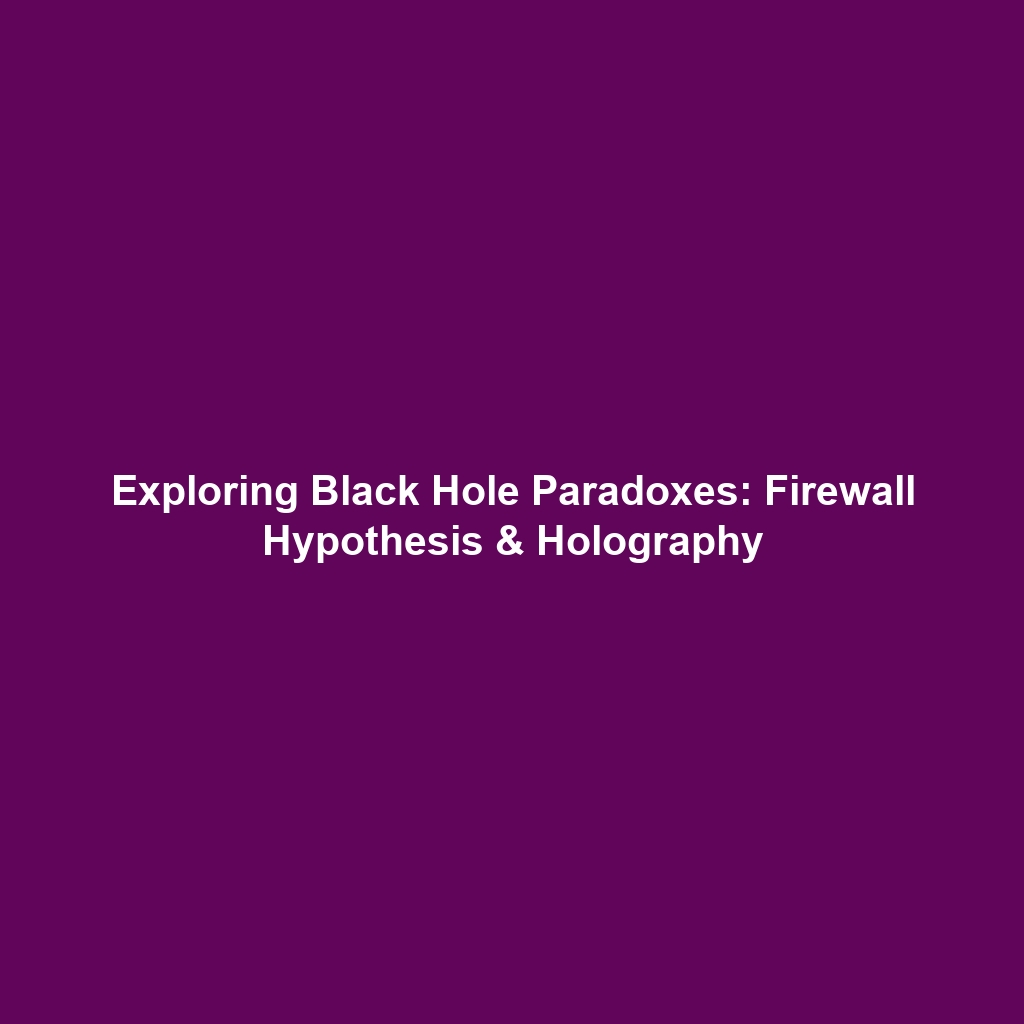Theoretical Implications of Crossing the Event Horizon
The theoretical implications of crossing the event horizon are among the most intriguing aspects of black hole physics, sparking intense debate and research in the field of astrophysics. Understanding this phenomenon not only challenges our perception of space and time but also enriches our comprehension of general relativity. As researchers delve deeper into the fabric of the universe, the significance of crossing the event horizon reveals critical insights that could redefine our approach to black hole studies.
Key Concepts
The event horizon is the boundary surrounding a black hole beyond which nothing can escape, not even light. Theoretical implications of crossing the event horizon encompass several concepts:
- Singularity: A point at the core of a black hole where densities become infinite and conventional physics breaks down.
- Time Dilation: As one approaches the event horizon, time appears to slow down from an outside observer’s perspective.
- Information Paradox: Raises questions about whether information is lost when it crosses the event horizon, challenging fundamental theories in quantum mechanics.
- Wormholes: Hypothetical passages through space-time, potentially connecting distant regions of the universe, which may also relate to the event horizon’s properties.
Applications and Real-World Uses
Theoretical implications of crossing the event horizon have several applications in astrophysics and cosmology:
- Astrophysical Models: Enhanced models of black holes help in predicting the behaviors of matter and radiation in extreme environments.
- Technological Innovations: The study of black holes informs advancements in quantum computing and data encryption techniques by addressing the information paradox.
- Gravitational Wave Astronomy: Understanding black hole mergers leads to improved methodologies for detecting gravitational waves.
Current Challenges
Despite significant advancements in our understanding, several challenges persist in studying the theoretical implications of crossing the event horizon:
- Observer Limitations: Observational tools cannot directly witness phenomena occurring beyond the event horizon.
- Mathematical Complexities: Theories involving black holes, such as string theory and quantum gravity, remain difficult to quantify and test.
- Data Interpretation: Analyzing data from events surrounding black holes often leads to conflicting theories and interpretations.
Future Research and Innovations
Looking ahead, the exploration of the theoretical implications of crossing the event horizon presents numerous research opportunities:
- Hawking Radiation Studies: Research into how black holes evolve and emit radiation could yield insights into the nature of event horizons.
- Quantum Information Theory: Investigations into how information behaves near the event horizon may revolutionize our approach to quantum mechanics.
- Observational Technology: Development of next-gen telescopes and observational techniques aim to provide more clarity on black hole phenomena.
Conclusion
In summary, the theoretical implications of crossing the event horizon not only deepen our understanding of black holes but also challenge established principles in physics. Continued research could unlock new dimensions of knowledge and technology. For more insights on black holes and related topics, visit our dedicated sections on cosmology and general relativity.







